Best Museums in Naples – Naples, in Southwest Florida may be known for its stunning beaches and vibrant The culture of Naples, FL, deeply rooted in its museums, showcases a rich tapestry of history and development, from the days of early settlers to the flourishing tourist destination it is today., but one aspect of this charming city often overlooked is its impressive museum scene. With a variety of great museums that cater to different interests and curiosities, Naples offers visitors a chance to explore its rich cultural and historical landscape, from the ancient Mastodons to the modern-day marvels on 5th Avenue. history, art, and culture all in one place.
Museums in Naples Florida as a Cultural Destination
After exploring the vibrant museum scene in Naples, Florida, it is clear that this city is a true cultural gem. With a diverse range of great museums offering something for everyone, Naples has firmly established itself as a must-visit destination for those seeking art, history, and education.
Beyond the museums, Naples itself is steeped in culture, with a vibrant arts scene, lively festivals, and a deep respect for the city’s historical roots. Whether strolling through art galleries, attending live performances, or exploring the city’s charming streets, Naples envelops you in its rich cultural tapestry.
So, if you’re looking for a destination that combines natural beauty with a thriving cultural scene, look no further than Naples, Florida. With its array of museums and cultural offerings, this city opens doors to a world of discovery and inspiration. Embark on your Naples museum adventure and experience the cultural magic this city has to offer.
The Revs Institute: Celebrating Automotive Milestones and Masterpieces

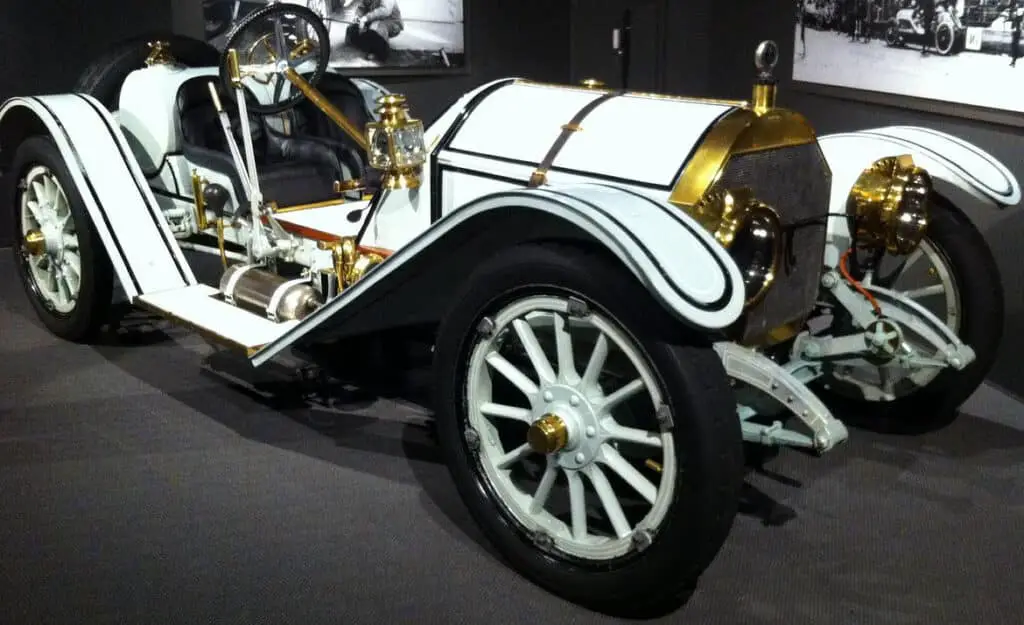
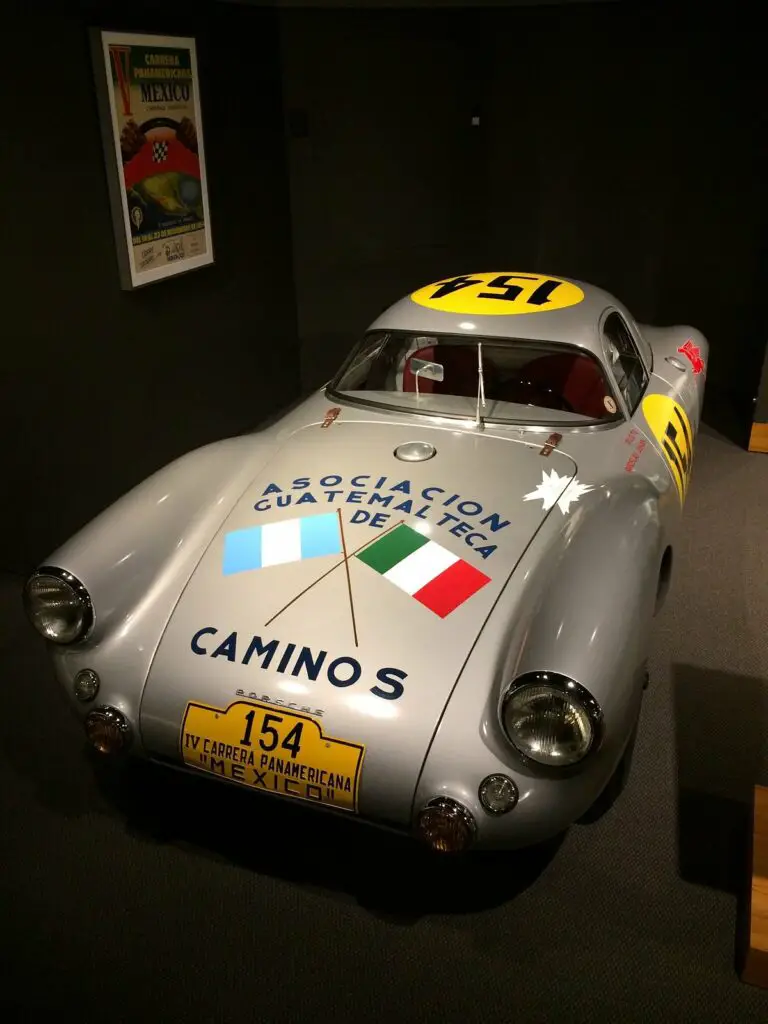

Nestled in the heart of Naples, Florida, the Revs Institute stands as a testament to the monumental impact of significant automobiles built between 1896 and 1995. As an avid car enthusiast, my visit to this museum was nothing short of exhilarating, offering a deep dive into a collection that has not only made history but fundamentally changed the world of transportation.
The Revs Institute houses an unparalleled assembly of vehicles that have blazed technical pathways and redefined aesthetic standards in the automotive realm. Each of the over 100 cars on display is a piece of history, carefully restored and maintained to pristine condition, allowing visitors to step back in time and experience the evolution of automotive brilliance firsthand.
Exploring the museum, I was captivated by the breadth of the collection, which spans from the rugged elegance of classic American muscle cars to the refined sophistication of European sports cars. These vehicles are not just modes of transportation; they are icons that have shaped our cultural and technological landscapes.
Among the many treasures, the opportunity to stand in the presence of cars that have indelibly marked the automotive industry was profoundly impactful. Witnessing the sleek lines of a Ferrari or the formidable presence of a Ford GT40 up close was a vivid reminder of how these machines have redefined our notions of speed, design, and performance.
The Revs Institute goes beyond mere display, offering insightful exhibits and interactive experiences that delve into the legacy of these remarkable vehicles. Visitors are invited to explore the stories behind the cars that blazed new trails in engineering and aesthetics, celebrating the ingenuity and artistry that propelled the automotive industry forward.
For anyone with a passion for cars, or an interest in the pivotal moments that have shaped our modern world, the Revs Institute in Naples, Florida, is an essential destination. It’s a place where the cars that changed the world are honored and preserved, inviting us all to appreciate the milestones of automotive history and the enduring legacy of innovation and beauty.
Artis – The Baker Museum: A Nexus of Contemporary and Classic Art
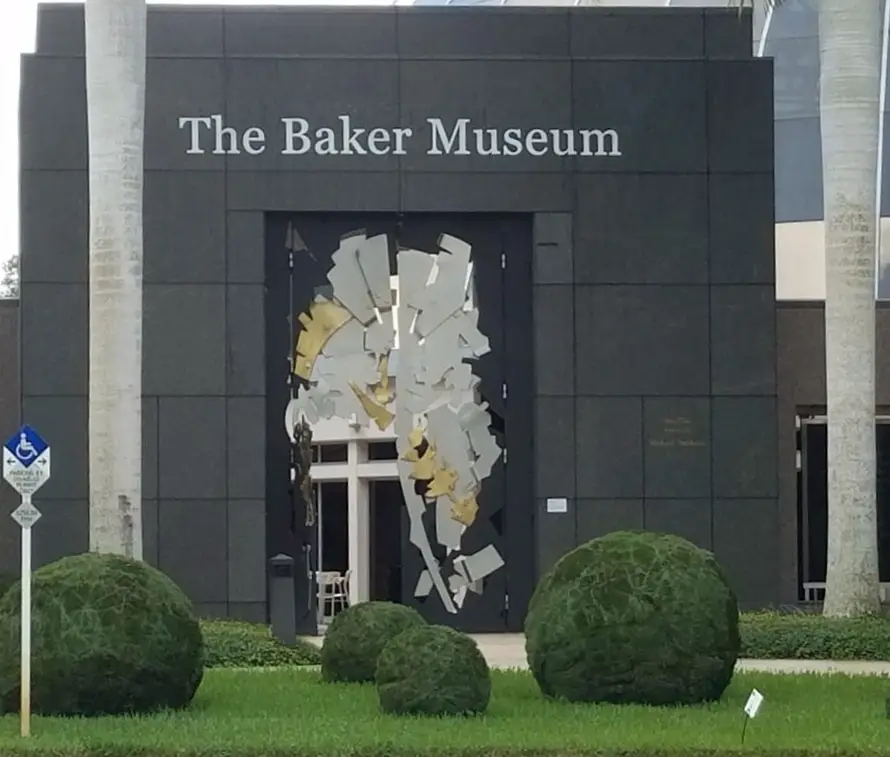

During my exploration of Naples, Florida, I was particularly drawn to the dynamic interplay of contemporary and classic art within Artis—The Baker Museum. This remarkable institution stands as a beacon of artistic excellence, where a diverse array of artworks spanning various periods and styles coalesce, fostering a vibrant conversation between historical richness and contemporary innovation.
At the heart of Artis, The Baker Museum lies its esteemed collection of modern and contemporary art. Visitors are treated to the works of illustrious artists such as Salvador Dali, Roy Lichtenstein, and Georgia O’Keeffe, among others. The museum’s dedication to showcasing avant-garde contemporary art offers a window into the fluid and transformative nature of creative expression, capturing the pulse of the evolving artistic landscape.
Moreover, Artis – The Baker Museum distinguishes itself with an ever-changing roster of temporary exhibitions. These exhibitions, ranging from introspective installations to expansive multimedia experiences, are meticulously curated to provoke thought and stir the imagination. Each presentation is an invitation to engage with art in new and meaningful ways.
To augment the visitor experience, Artis, The Baker Museum provides a suite of educational programs and guided tours designed to deepen the appreciation of its collections. Through insightful lectures and hands-on workshops, the museum fosters a dialogue between the art, the viewer, and the broader community, highlighting its commitment to cultural enrichment and accessibility.
Artis, The Baker Museum emerges as an essential destination for art lovers traversing Naples, Florida. Its architectural elegance, coupled with a renowned collection that bridges the gap between the classical and the contemporary, crafts an unparalleled cultural journey. Here, the enduring allure of timeless masterpieces and the bold visions of modern creators meld, offering an expansive and immersive art experience to all who enter its doors.

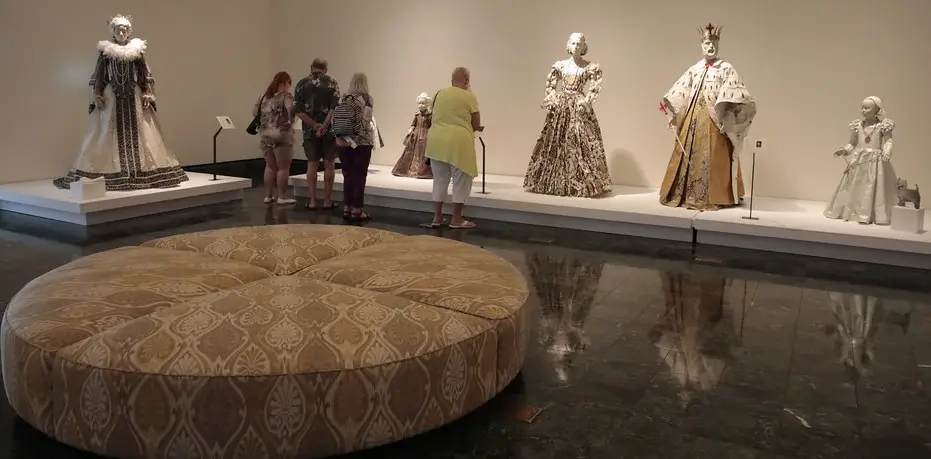
Collier Museum at Government Center: Unveiling the Legacy of Collier County
Nestled in the vibrant heart of downtown Naples, the Collier Museum at Government Center stands as a beacon of local heritage, located on a five-acre site that invites visitors to traverse the depths of Collier County’s rich historical tapestry. This museum serves as a gateway to understanding the intricate layers of history and culture that have shaped the surrounding community.
The museum’s vast array of artifacts and exhibits meticulously chronicles the evolution of Collier County, from the early presence of Native American tribes to the industrious pioneers who charted the course of its development. The journey through the museum is an immersive experience, allowing visitors to explore a wide variety of themes such as the initial settlements, agricultural advancements, burgeoning tourism, and notably, the significant impact of World War II on the region.
Among the museum’s treasure trove of historical artifacts, one of the most compelling displays is the World War II Sherman tank. This formidable piece of military history stands as a testament to the county’s contribution to the war effort and serves as a powerful reminder of the sacrifices made during a pivotal period in history.
Additionally, the museum boasts a remarkable collection of vintage automobiles, showcasing the evolution of transportation within Collier County. From elegant horse-drawn carriages to the sleek designs of mid-century vehicles, this exhibit offers a fascinating glimpse into the technological progress that has propelled the region forward.
Throughout my visit, I was struck by the museum’s dedication to education and the preservation of Collier County’s historical narrative. Through its array of educational programs, guided tours, and interactive workshops, the Collier Museum at Government Center engages visitors of all ages, fostering a deeper connection to the community’s past and instilling a sense of pride in its heritage.
A visit to the Collier Museum at Government Center is more than just a dive into local history; it’s an enriching exploration of the stories, achievements, and enduring spirit of Collier County. Whether you’re a seasoned history enthusiast or simply curious about the foundations of this vibrant community, the museum offers a captivating and informative experience that is not to be missed when in Naples, Florida.
Exploring the Naples Historic District Through Palm Cottage: A Living Museum Experience


Nestled within the heart of the Naples Historic District, the Naples Historical Society’s Historic Palm Cottage stands as a living testament to Naples’ rich heritage. Referred to as “Naples is a museum,” this venerable house in Naples, listed on the National Register of Historic Places, offers visitors an intimate journey into the city’s storied past. Dating back to the late 1800s, Palm Cottage is a rare example of tabby mortar construction, highlighting the unique architectural history of the region.
As you wander through the indoor and outdoor spaces of this meticulously preserved cottage, you’re enveloped in the essence of a bygone era. The authentic furnishings, period wallpaper, and antique décor within each room have been carefully restored to mirror the cottage’s original splendor, offering a tangible connection to Naples’ early days.
The knowledgeable guides at Palm Cottage bring the history of Naples and its early settlers to life with captivating tales of the house’s original occupants and the formidable challenges they overcame to establish a community in this once-remote corner of Florida. Their stories enrich the visit, providing context and depth to the historical exploration.
A stroll through the cottage’s lush gardens, brimming with native flora, offers a serene retreat reminiscent of leisurely afternoons enjoyed by its first residents. These outdoor spaces serve not just as a botanical haven but as an extension of the museum experience, inviting visitors to ponder the lives of those who once called Palm Cottage home.
For anyone seeking to delve into the heart of Naples’ historical narrative, a visit to the Naples Historical Society’s Historic Palm Cottage is indispensable. It’s not just a tour of a house in Naples; it’s an immersive experience that bridges the past and present, fostering a profound appreciation for the pioneering spirit that has shaped the vibrant community of Naples.
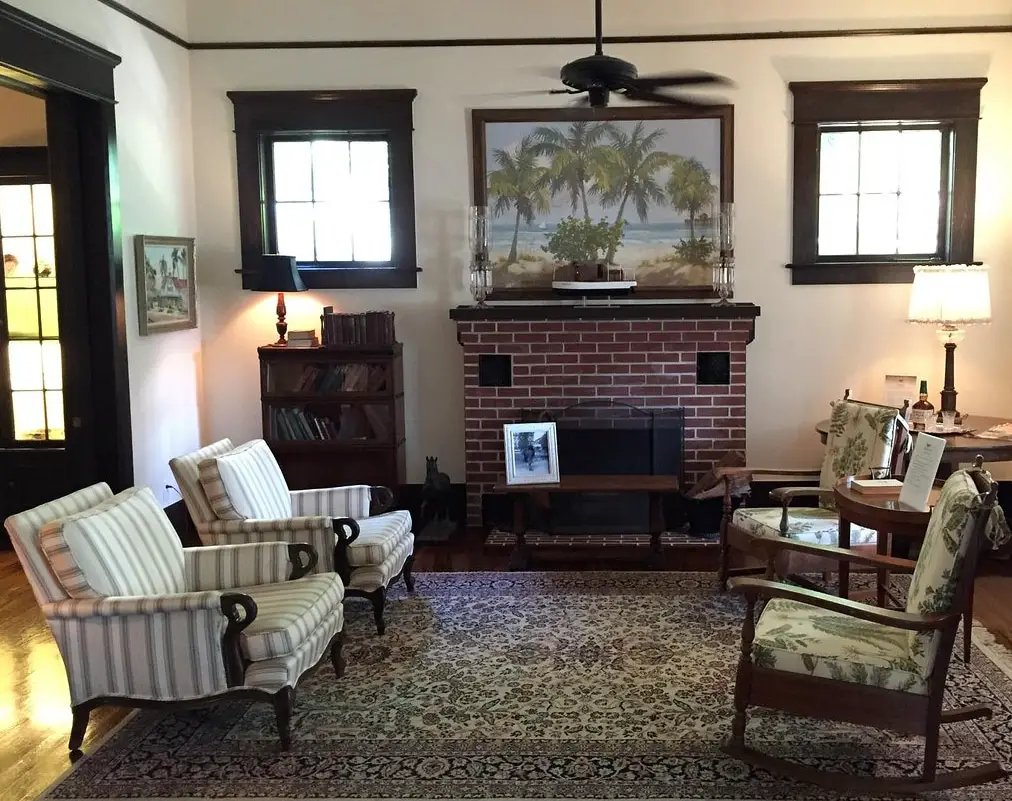


Golisano Children’s Museum of Naples: Interactive Learning for Young Minds

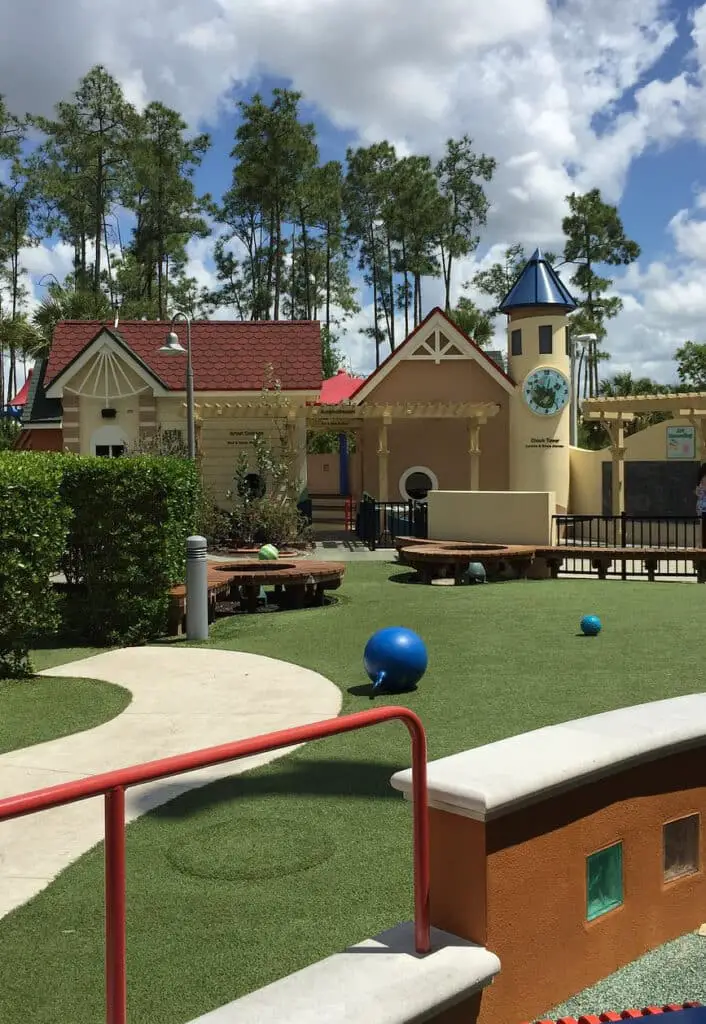
Visiting the Golisano Children’s Museum of Naples was a delightful experience. This museum is specifically designed to engage young minds in interactive learning and exploration. As soon as I stepped through the doors, I could feel the energy and excitement in the air.
The museum offers a wide range of exhibits and activities that cater to children of all ages. From hands-on science experiments to imaginative play areas, there is something for everyone. I was impressed by the variety of educational themes covered, including art, nature, and technology.
One of the highlights of my visit was the “Wonder Garden”, an outdoor space where children can explore and connect with nature. They can dig in the dirt, climb trees, and observe local wildlife. It was heartwarming to see children fully immersed in outdoor play and learning.
The museum also offers a variety of workshops, classes, and special events throughout the year. These additional experiences provide even more opportunities for children to expand their knowledge and creativity.
Overall, the Golisano Children’s Museum of Naples is a must-visit for families and anyone with a passion for interactive learning. It’s a place where children can have fun while engaging in educational activities, making it a truly unique and enriching experience.

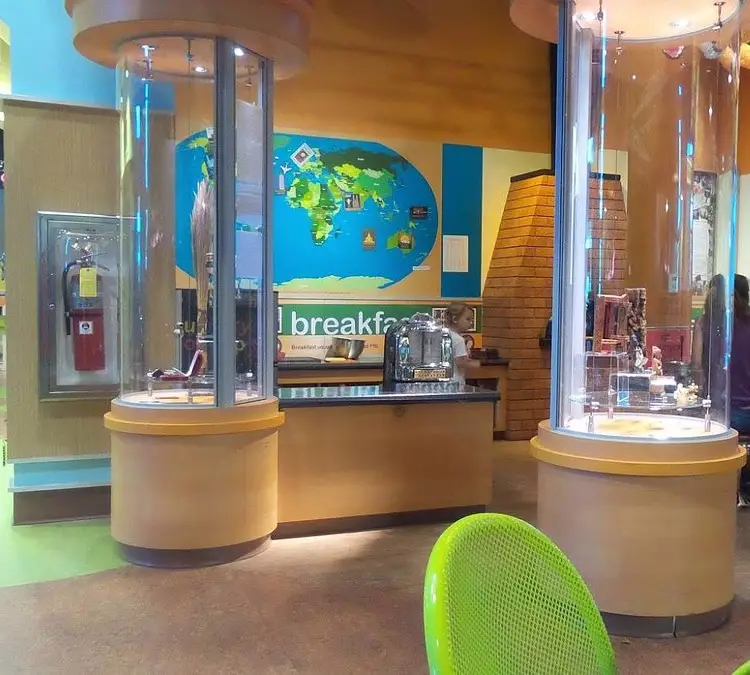
The Holocaust Museum & Cohen Education Center: A Chronicle of Resilience and Remembrance

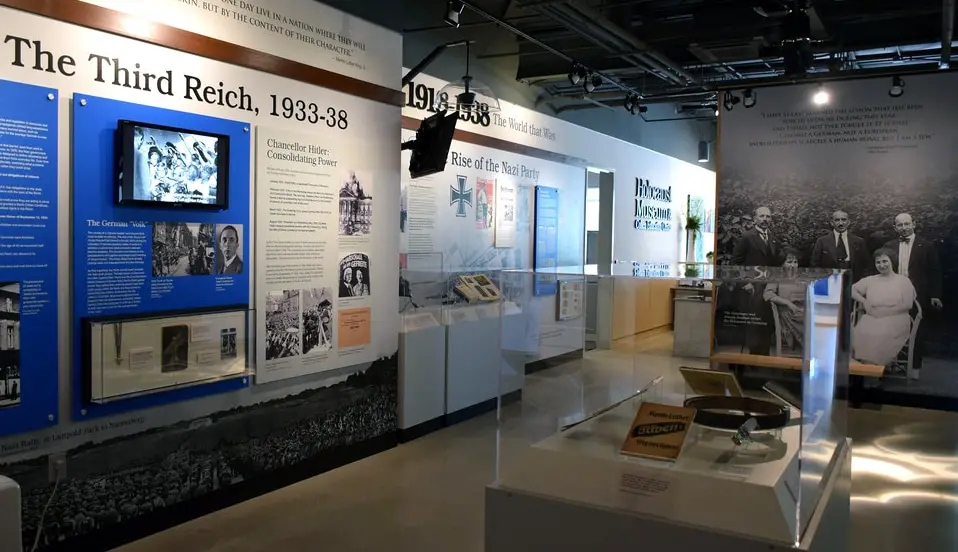
The Holocaust Museum & Cohen Education Center stands as a solemn tribute to the memory of those who suffered through one of history’s darkest periods. Upon entering, the profound weight of the Holocaust’s history envelops visitors, setting the tone for an educational journey marked by reflection and learning.
This museum is distinguished by its extensive exhibit on World War II and holocaust artifacts and original photographs displayed chronologically from the rise of nazism to allied liberation and the Nuremberg Trials. It presents a meticulously curated collection that includes artifacts, original photographs, and survivor testimonies. These exhibits meticulously document the systematic persecution and extermination orchestrated by the Nazi regime, leading visitors through the escalating horrors of the Holocaust to the eventual liberation and the quest for justice that followed.
Among the museum’s many poignant displays, the room filled with shoes remains one of its most haunting. This silent testimony to the lives extinguished during the Holocaust serves as a powerful reminder of the sheer scale of human loss.
Beyond its exhibits, the museum is committed to education, offering programs and workshops designed to foster discussions on the Holocaust’s enduring lessons. By engaging visitors in conversations about tolerance, acceptance, and the perils of unchecked hatred, the museum plays a crucial role in ensuring that future generations heed the lessons of the past.
My visit to the Holocaust Museum & Cohen Education Center was an intensely moving experience, serving as a stark reminder of humanity’s capacity for both cruelty and resilience. Through its comprehensive portrayal of the Holocaust, from the rise of Nazism through to the Nuremberg Trials, the museum not only honors the memory of those who were lost but also underscores the importance of remembrance and education in preventing such atrocities from occurring in the future.
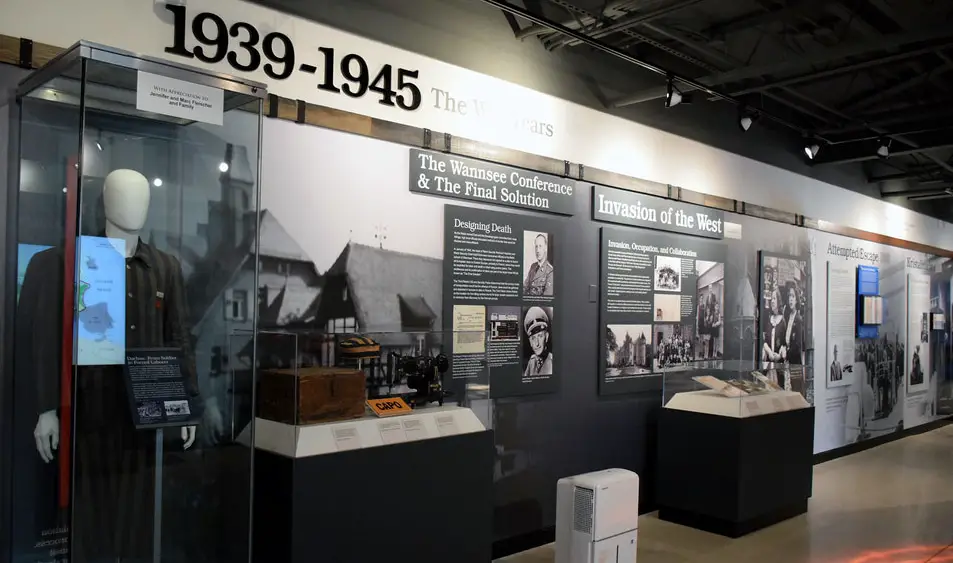
Naples Depot Museum: An Expedition Through the Evolution of Railways
During my exploration of museums in Naples, Florida, the Naples Depot Museum stood out as a remarkable portal to the bygone days of rail travel. Upon entering, I was immediately enveloped by a collection that transported me to the golden age of railways, with vintage locomotives, elegantly designed carriages, and a plethora of railway memorabilia commanding my attention.
The museum is meticulously curated to illustrate the transformative journey of railway transportation, from the chugging steam engines of yesteryear to the streamlined electric trains that have shaped modern travel. Witnessing the technological advancements and the ingenuity behind these machines was both enlightening and inspiring.
A standout feature of the Naples Depot Museum is the rare opportunity to step inside historic train cars. Venturing into these vintage carriages, I was afforded a glimpse into the travel experiences of past generations, making for an authentically immersive adventure.
The museum doesn’t just cater to train aficionados; it also offers a range of educational initiatives aimed at all ages. Through interactive exhibits and hands-on workshops, visitors can dive deep into the lore of locomotives, enriching their understanding of rail history’s pivotal role in societal development.
For anyone fascinated by the romance of railroads or keen on uncovering the historical milestones of train travel, the Naples Depot Museum is an essential visit. It’s more than a museum; it’s a journey through the heart of rail history, showcasing the impact of trains on the growth and connectivity of communities. Make sure to include this remarkable museum in your Naples itinerary for a truly unforgettable experience.
To learn more about the Naples Depot Museum and plan your visit, visit their website.
Discovering the Naples Train Museum: A New Perspective on Rail History
While the Naples Depot Museum provides a comprehensive overview of rail history’s broader narrative, the Naples Train Museum offers a distinct and equally engaging exploration of railway heritage. Located in close proximity, these two institutions together present a full spectrum of rail-related history, each from its unique vantage point.
The Naples Train Museum focuses specifically on the model train displays and the intricacies of railroading that have captivated enthusiasts for generations. Here, visitors can marvel at detailed scale models that replicate historical railways and modern rail systems with astonishing accuracy. The museum’s dioramas, complete with miniature towns and landscapes, bring the magic of train travel to life in a way that’s accessible to both the young and the young at heart.
In addition to its model trains, the Naples Train Museum emphasizes the educational aspect of railroading, offering workshops and interactive exhibits that delve into the mechanics of trains and the complexities of railway operations. This hands-on approach allows visitors to not only learn about rail history but to actively engage with it, fostering a deeper appreciation for the engineering marvels that trains represent.
Whether you’re drawn to the historical significance of the Naples Depot Museum or the detailed craftsmanship of the Naples Train Museum, both venues offer unique insights into the world of trains. By visiting these museums, you embark on a comprehensive journey through the past, present, and future of rail transportation, highlighting the enduring legacy of trains in Naples, Florida, and beyond.
- Research the museums: Before your visit, take the time to research each museum’s exhibits and collections. This will help you prioritize the ones that interest you the most and ensure you don’t miss out on any must-see pieces.
- Check opening hours and days: Different museums may have different operating hours or days of the week when they are closed. Make sure to check the schedules so you can plan your visit accordingly.
- Consider purchasing tickets in advance: Some museums offer the option to purchase tickets online in advance. This can help you bypass long lines and ensure you have guaranteed entry.
- Allow ample time: Give yourself enough time to explore each museum thoroughly. Consider the size of the museum, the number of exhibits, and your own personal interests when allocating time for each visit.
- Take advantage of guided tours: Many museums offer guided tours led by knowledgeable docents. These tours can provide valuable insights and background information about the exhibits, enhancing your overall experience.
- Bring a map or guide: While most museums provide maps or guides, it’s always a good idea to have a backup. This can help you navigate through the museum more efficiently and ensure you don’t miss any important exhibits.
By planning your visit to the museums in Naples, you can ensure a smooth and enjoyable experience, immersing yourself in the rich cultural offerings of the city. Don’t forget to check the websites of each museum for additional information and any special exhibitions or events happening during your visit.
FAQs: Navigating Naples’ Museum Scene
When visiting Naples, Florida, you may have questions about navigating the city’s museum scene. Here are some commonly asked questions and their answers to help you plan your museum adventures:
How many museums are there in Naples?
Naples is home to several museums, including The Revs Institute, The Baker Museum, Collier Museum at Government Center, Naples Historical Society’s Historic Palm Cottage, Golisano Children’s Museum of Naples, The Holocaust Museum & Cohen Education Center, and the Naples Train Museum.
Are there any discounts or special pricing for museum tickets?
Some museums offer discounts for seniors, students, and military personnel. It’s best to check each museum’s website or inquire at the ticket counter for specific pricing information and any available discounts.
Can I take photographs inside the museums?
Photography policies vary from museum to museum. Some museums allow photography without flash, while others may have restrictions. It’s always best to ask for permission or check the museum’s guidelines before taking photographs.
Are there guided tours available?
Many museums in Naples offer guided tours led by knowledgeable staff or trained volunteers. These tours provide valuable insights into the exhibits and can enhance your museum experience.
Are the museums wheelchair accessible?
Most museums in Naples are wheelchair accessible, offering ramps, elevators, and accessible restrooms. Visitors with accessibility needs are encouraged to contact the museums in advance for specific accommodations and assistance.

